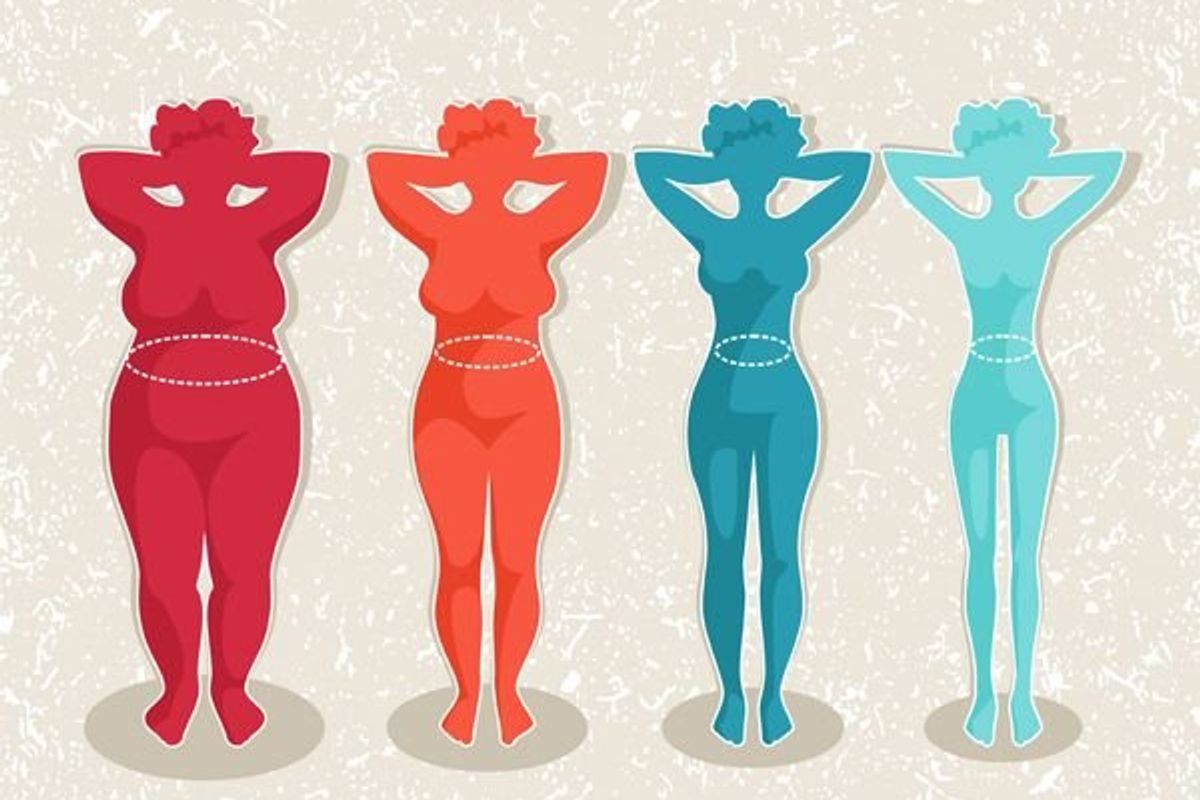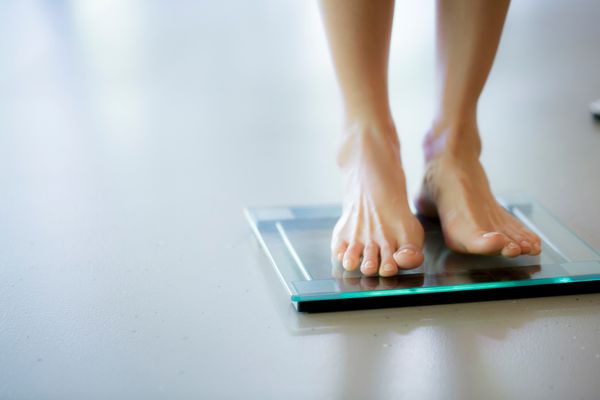By Laura Andromalos, MS, RD, LDN
Do the scales show the same number every morning, no matter how much you exercise and how little you eat? Don't get frustrated. Remember that the number on the scales isn't the only way to measure weight-loss success.
Mistakes in Measuring Success
In the Harvard Business Review, Michael Mauboussin writes about a common mistake that many businesses make: using the wrong metrics to measure success. We make the same mistake in the health care world when we use weight as the only measure of success. After all, in the words of Dr. Arya Sharma, "Health is not measured in pounds."
What's Wrong with Weight?
As Mauboussin explains, the best metric for success will consistently be changed by the actions that you are taking. In other words, if weight is the best measure of success, it will change in a predictable way from your healthy actions.
The problem is that weight is not always predictable, and it doesn't tell the whole story. You can lose weight in unhealthy ways or you can start healthy habits and not always see a change in weight. Plus, body factors, like muscle mass, bone structure, and water, affect weight.
Bottom line: The actions that make you healthier do not always lead to weight changes. This doesn't mean weight is a bad metric. It just can't be the only way you measure success.
Know Your Real Goal
To measure success, you need to know your real goal. "Losing weight" may not be the real goal for many people. We often say that our goal is to "lose x number of pounds" because we closely tie weight to health, success and being accepted. Also, weight is easy to track.
But your real goal is probably about health or energy levels or confidence or feeling comfortable. Your real goal is to have a better quality of life, in a physical, mental and/or emotional way. That type of goal is not measured by weight alone. If you think of weight loss as the goal and use weight to define success, you are missing the big picture.
How to Measure Success
We need to look beyond the scale to measure success. So where should we look? It will vary from person to person based on their goals, but here are a few ideas.
Body Measurements
Sometimes you can lose body fat but not see a big change on the scale. Since muscle weighs more than fat, you might be maintaining or building lean muscle. If you are a numbers person, body measurements are a helpful number to track instead of just weight. Taking measurements of your waist, hips, arms and legs when you start your health journey will give you a way to measure progress throughout time. Taking pictures will also help you to see the changes.
Clothing Sizes
Even without taking body measurements, you can use clothing as a guide. Are you:
- Losing pant or dress sizes?
- Comfortably wearing clothes that had been pushed to the back of the closet?
- No longer browsing the plus-size section?
Then something in your body is changing! Just be careful that you don't play the "numbers game" with clothing sizes. Like the number on the scale, the number on your clothing tag doesn't define you.
Weight-Related Health Conditions and Medications
High blood pressure, high cholesterol, diabetes and sleep apnea are just a few of the health conditions that are related to excess weight. Since starting your health journey:
- Have your blood pressure or cholesterol levels improved?
- Is your blood sugar easier to control?
- Are you taking smaller doses or fewer medications to help with these conditions?
- Did you ditch the CPAP (for sleep apnea)?
Fewer medications and fewer health conditions are amazing successes.
Feeling Comfortable in Public Settings
Having extra weight can cause uncomfortable situations in public settings. Maybe you've experienced this on public transportation, airplanes or at the amusement park.
Did you walk into a room recently without looking for an armless chair? Feeling comfortable is so important for physical, mental and emotional health.
Greater Mobility
Was your weight literally holding you back before? Maybe your joints and low back were achy from carrying excess weight or maybe you needed to use a walker or wheelchair.
If you've been able to ditch that walker or wheelchair and walk on your own, that's amazing. Even something as simple as crossing your legs or tying your shoes is great progress. How are you celebrating your new mobility?
Greater Energy and Endurance
Are you bursting with energy since you started your health journey? Here are a few examples of everyday situations that may reflect improved energy and endurance:
- You can take a long shower without feeling like you need to sit down and take a break.
- You can walk longer distances at faster speeds.
- You can keep up with the kids at a park or an amusement park—and even have energy at the end of each day.
Those all count as successes!
Enjoying Being Active
Extra weight can make it hard to enjoy physical activity. Not only are you carrying extra weight, you might have had an unpleasant exercise situation, which makes it mentally hard to enjoy physical activity. Are you enjoying being active for the first time in years or maybe even ever—maybe walking, dancing, water exercises or yard work? You can measure your progress in distance, dance steps, laps or a thriving garden.
No Judgment, No Praise
A yoga teacher liked to end her classes by saying: "Acknowledge your practice without judgment or praise." When we judge or praise, we are saying that something is "bad" or "good" and that defeats the whole point of yoga.
You can use this mindset for the scale, too. Next time you step on the scale, acknowledge your weight without judgment or praise. Take it for what it is: a number, one small piece of a big health puzzle, and certainly not the only measure of success.
Laura Andromalos, MS, RD, LDN, has been helping bariatric patients to achieve their health goals for more than five years. She works as the bariatric nutrition coordinator at Brigham and Women's Hospital in Boston. She received a BS in nutritional sciences from Cornell University, completed her dietetic internship at Mayo Clinic Florida and received an MS in Health Communication from Boston University.








